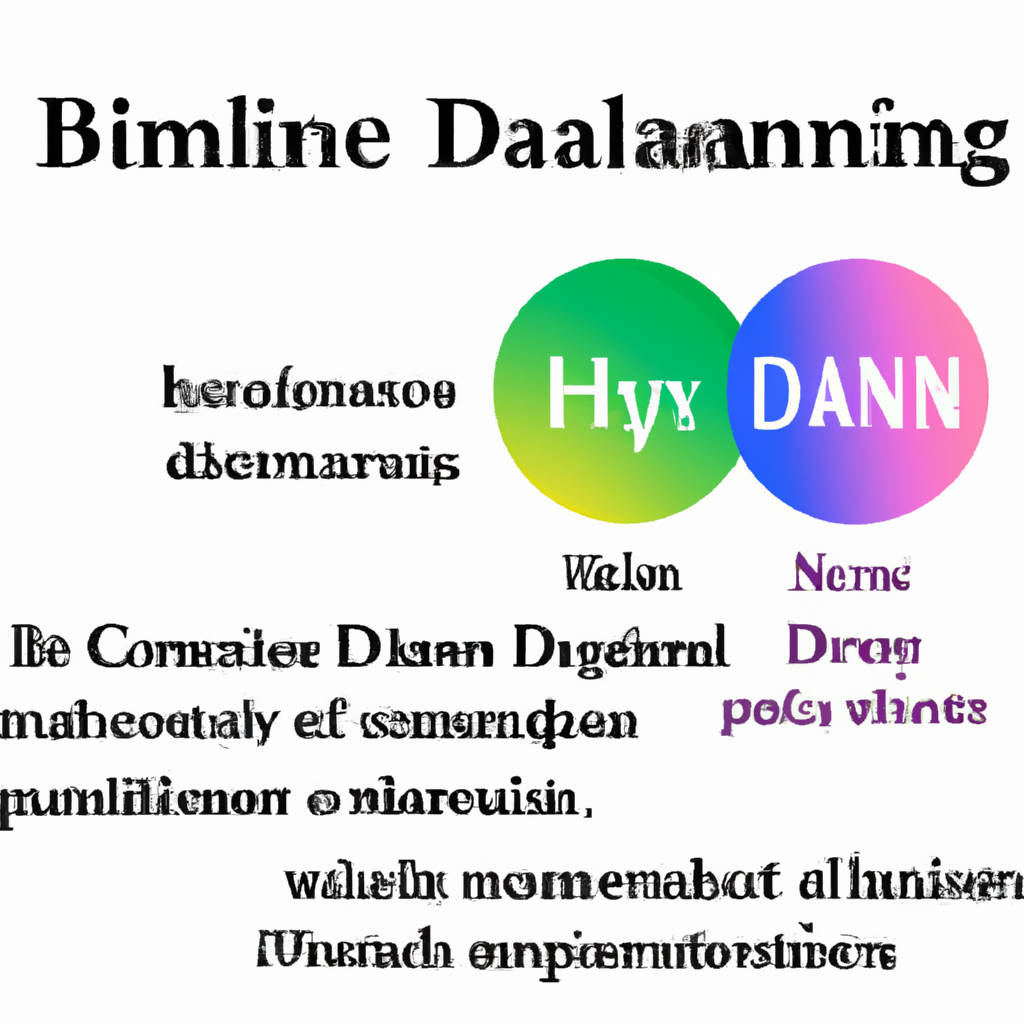Dopamine fasting has become a popular trend in recent years, with proponents claiming that taking a break from activities that provide instant gratification can help to reset the brain and increase focus, motivation, and productivity. However, many experts in the field of neuroscience and psychology are skeptical of the science behind this trend. Dopamine fasting is based on the idea that dopamine, a neurotransmitter associated with pleasure and reward, is released in response to certain activities such as eating sugary foods, watching TV, or checking social media.
Proponents of dopamine fasting believe that by abstaining from these activities, individuals can reduce their overall dopamine levels and increase their sensitivity to pleasure-inducing stimuli. However, many scientists argue that the concept of dopamine fasting is oversimplified and lacks empirical evidence to support its claims. Dopamine is a complex neurotransmitter that plays a crucial role in a wide range of cognitive and motor functions, and its regulation is not as straightforward as simply avoiding pleasurable activities for a period of time.
Additionally, the idea that dopamine fasting can lead to increased focus and productivity is not supported by research. In fact, studies have shown that dopamine plays a key role in motivation and goal-directed behavior, suggesting that reducing dopamine levels through fasting could actually have a negative impact on these cognitive functions. Overall, while taking breaks from certain activities can be beneficial for mental health and well-being, the concept of dopamine fasting as a quick fix for improving focus and productivity may be more hype than science. It is important for individuals to approach trends like dopamine fasting with a critical eye and consult with experts in the field before making drastic changes to their lifestyle based on unproven claims.

The Dopamine Fasting Phenomenon: Origins and Spread
The Dopamine Fasting phenomenon has gained popularity in recent years as a method for individuals to reset their brains and reduce the overstimulation caused by modern technology and constant access to pleasure-inducing activities. Originating in Silicon Valley, where tech executives and entrepreneurs sought ways to increase productivity and focus, dopamine fasting involves abstaining from activities that provide instant gratification, such as social media, video games, junk food, and even social interaction.
Proponents of dopamine fasting believe that by limiting these dopamine-releasing activities, individuals can retrain their brains to appreciate the simple joys of life and improve their mental clarity and overall well-being. The trend has quickly spread to other parts of the world, with people from all walks of life adopting this practice as a way to combat feelings of overwhelm and burnout in our fast-paced society. While some critics dismiss dopamine fasting as a passing fad or pseudoscience, others swear by its benefits and claim to have experienced increased focus, creativity, and a renewed sense of purpose after implementing regular fasting periods into their routines.
As the phenomenon continues to gain traction, it remains to be seen whether dopamine fasting will become a mainstream practice or fade into obscurity like other wellness trends. Regardless of its staying power, one thing is clear: the desire to disconnect from the constant barrage of stimuli in our digital age is a universal sentiment that transcends geographical boundaries and cultural differences.
Dissecting the Science: What Dopamine Fasting Gets Wrong
Dopamine fasting has gained popularity in recent years as a method for resetting the brain’s reward system and increasing productivity. However, many scientists and experts argue that the concept of dopamine fasting is based on flawed science and misunderstandings about how dopamine works in the brain. While it is true that excessive stimulation of the brain’s reward system can lead to addictive behaviors and decreased motivation, simply avoiding pleasurable activities for a period of time is not a sustainable solution.
Dopamine is a neurotransmitter that plays a crucial role in motivation, learning, and pleasure, and it is released in response to a variety of stimuli, not just pleasure-inducing activities. By demonizing dopamine and labeling it as the enemy, proponents of dopamine fasting overlook the complex and multifaceted nature of the brain’s reward system. Additionally, depriving oneself of all enjoyable activities can have negative consequences on mental health and overall well-being.
Instead of focusing on restricting dopamine release, experts suggest a more balanced approach to managing dopamine levels, such as engaging in healthy and fulfilling activities, practicing mindfulness, and cultivating positive habits. In conclusion, while the intention behind dopamine fasting may be well-meaning, its approach is based on misconceptions about neuroscience and could potentially do more harm than good in the long run.
The Risks of Overlooking Dopamine’s Crucial Role in Brain Function
Dopamine is a neurotransmitter that plays a crucial role in brain function, including regulating movement, emotion, cognition, and motivation. However, the risks of overlooking dopamine’s crucial role in brain function can have serious consequences. When dopamine levels are disrupted or imbalanced, it can lead to a range of mental health disorders such as depression, anxiety, and even addiction.
Additionally, dopamine is also involved in reward pathways in the brain, so when its function is compromised, it can lead to a lack of motivation, anhedonia, and difficulty experiencing pleasure. Furthermore, research has shown that dopamine dysregulation is linked to neurological conditions such as Parkinson’s disease and schizophrenia. Therefore, understanding and addressing the role of dopamine in brain function is essential for maintaining overall mental and emotional well-being. It is important for individuals to be aware of the impact that lifestyle factors such as stress, lack of sleep, and poor diet can have on dopamine levels and to take steps to prioritize their mental health.
Seeking support from mental health professionals and utilizing therapies and medications that target dopamine regulation can help to mitigate the risks associated with overlooking this crucial neurotransmitter’s role in brain function. By recognizing the importance of dopamine in maintaining a healthy brain, individuals can take proactive steps to support their mental health and well-being.
Healthy Approaches to Balancing Dopamine Levels Without Extreme Measures
Balancing dopamine levels in the brain is essential for overall well-being and mental health. While some may resort to extreme measures such as substance abuse or risky behaviors to increase dopamine levels, there are healthier approaches that can be just as effective. One way to naturally boost dopamine levels is through regular exercise. Physical activity not only increases dopamine production, but also releases endorphins that can improve mood and reduce stress.
Eating a balanced diet rich in protein, vitamins, and minerals is another important factor in maintaining healthy dopamine levels. Foods such as bananas, almonds, and chicken are known to help regulate dopamine production in the brain. Additionally, practicing mindfulness and relaxation techniques can also be beneficial in balancing dopamine levels. Activities such as meditation, yoga, and deep breathing exercises can help reduce cortisol levels and promote a sense of calm that can positively impact dopamine regulation.
It’s important to remember that finding a balance in life is key to maintaining healthy dopamine levels. Engaging in activities that bring joy and fulfillment, such as spending time with loved ones, pursuing hobbies, and setting achievable goals, can also play a role in supporting overall mental well-being. By incorporating these healthy approaches into daily routines, individuals can effectively manage their dopamine levels without resorting to extreme measures that may have negative consequences on their health and well-being.

Debunking Myths and Misconceptions: Separating Fact from Fiction
In today’s world, there are countless myths and misconceptions that are often taken as fact without question. It is important to take the time to separate fact from fiction and debunk these falsehoods. One common misconception is that vaccines cause autism. In reality, numerous scientific studies have proven that there is no link between vaccines and autism. Another prevalent myth is that eating carrots will improve your eyesight.
While carrots are a healthy vegetable rich in Vitamin A, they alone will not miraculously improve your vision. Additionally, many people believe that sugar causes hyperactivity in children. However, research has shown that there is no direct correlation between sugar consumption and hyperactivity. It is crucial to critically evaluate information and sources to distinguish between what is true and what is simply a misconception.
By debunking these myths and misconceptions, we can make more informed decisions and better understand the world around us. It is important to question and challenge popular beliefs in order to separate fact from fiction and ensure that we are making decisions based on accurate information. By taking the time to educate ourselves and others, we can help dispel myths and promote a more informed and enlightened society.
Final Thoughts
As we come to the end of our discussion, it is important to reflect on the complexity of human behavior and the various factors that influence our choices. Final thoughts can be a time for introspection and self-reflection, as we consider how our actions impact ourselves and those around us. It is crucial to remember that our decisions are not made in a vacuum, but are shaped by our experiences, beliefs, and societal norms.
It is also important to recognize that there is rarely a clear-cut answer to ethical dilemmas, as morality is a subjective concept that can vary from person to person. As we navigate the complexities of life, it is essential to approach each situation with empathy and an open mind, considering the perspectives of others and seeking to understand the motivations behind their actions. Ultimately, final thoughts can serve as a reminder to strive for personal growth and to always act with integrity and compassion.
In a world that is constantly changing and evolving, it is important to remain vigilant and thoughtful in our decision-making processes, always striving to do what is right and just. As we move forward, let us continue to engage in meaningful dialogue, challenge our assumptions, and work towards creating a more just and equitable society for all.
